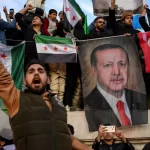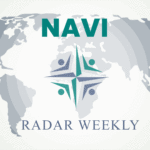Subscribe to NAVI Radar Weekly here
Focus Point: Regional Security- Transatlantic Security/European Security
Strategic Agenda 2024-2029: Continuity or paradigm shift? | The European Parliament
Think Tank | 17.07.2024

The EU’s leaders took two crucial decisions at their summit on 27 June to set the framework for the new institutional cycle: one on high-level appointments, the other on the Union’s political priorities for the next 5 years, the Strategic Agenda 2024-2029.
Since the adoption of the previous edition of the EU’s long-term priorities in 2019, the EU has had to face major crises, including the COVID-19 pandemic, the energy crisis, and the change in the security environment following Russia’s full-scale war against Ukraine.
Are these global challenges reflected in the EU’s new long-term political priorities or has the list of political orientations remained unchanged? Is the new Strategic Agenda more of a continuation or does it constitute a real shift? To answer these questions, this briefing examines the new Strategic Agenda, outlining its content, developments in its substance during the adoption process, and similarities and differences with the political priorities set in the previous institutional cycles.
The findings of the analysis (see the table in the Annex) show that the Strategic Agenda 2024-2029 constitutes an important shift in the EU’s political priorities compared with the previous Strategic Agenda, but that elements of continuity remain quite apparent nevertheless.
The most obvious changes are the significance of security and defence, the importance granted to enlargement, the addition of new elements on EU competitiveness, and the salience of democracy (within the Union and in relations with third countries), which is a headline priority for the first time.
Another noteworthy development is that less attention is paid to climate and environmental issues, even if some points were introduced during the drafting process.
At the same time, there is a substantial degree of continuity with the Strategic Agenda 2019-2024. Less than 20 % of the policy aspects are completely new, even though the length of the Strategic Agenda document has increased by 25 %.
This observation tends to indicate that the previous EU priorities remain relevant and that a reshaping of the Agenda (rather than starting from scratch) was considered sufficient.
Interestingly, many of the elements added seem to be a reiteration of policy issues addressed by the European Council in its conclusions over the last 5 years. Thus, the document appears to be a collection of previously agreed positions rather than a new set of guidelines. While the impact of Russia’s war against Ukraine and the change in the geopolitical context have fed into the new Strategic Agenda, other major issues of recent years such as health and energy are less explicitly referred to than could have been expected considering the severity of the crises with which the EU has been confronted. Read more…
Focus Point: Regional Security- Indo-Pacific
China Warns US, Japan To ‘Stop Creating Imaginary Enemies’| Barron’s
AFP | 29.07.2024
US Secretary of State Antony Blinken, Defense Secretary Lloyd Austin and their Japanese counterparts “reiterated their strong objections to the PRC’s unlawful maritime claims, militarization of reclaimed features, and threatening and provocative activities in the South China Sea”, a joint statement said, using an acronym for China.
China’s “destabilizing actions in this region
China’s “destabilizing actions in this region include unsafe encounters at sea and in the air, efforts to disrupt other countries’ offshore resources exploitation, as well as the dangerous use of Coast Guard and maritime militia vessels”, the communique added.
They accused China of “intensifying attempts to unilaterally change the status quo by force or coercion in the East China Sea” and that Chinese “foreign policy seeks to reshape the international order for its own benefit at the expense of others”.
China’s Lin on Monday said the joint statement “disregards facts, mixes up right and wrong maliciously attacks China’s foreign policy”.
He added the communique “crudely meddles in China’s internal affairs, maliciously attacks and smears China on maritime issues, makes thoughtless remarks on China’s normal military development and defence policy, exaggerates and kicks up a fuss about the China threat, and maliciously hypes up regional tensions”. Read more…
Focus Point: Regional Security- Indo-Pacific
‘Quad’ foreign ministers decry dangerous South China Sea actions | NBC NEWS
By Reuters| 29.07.2024
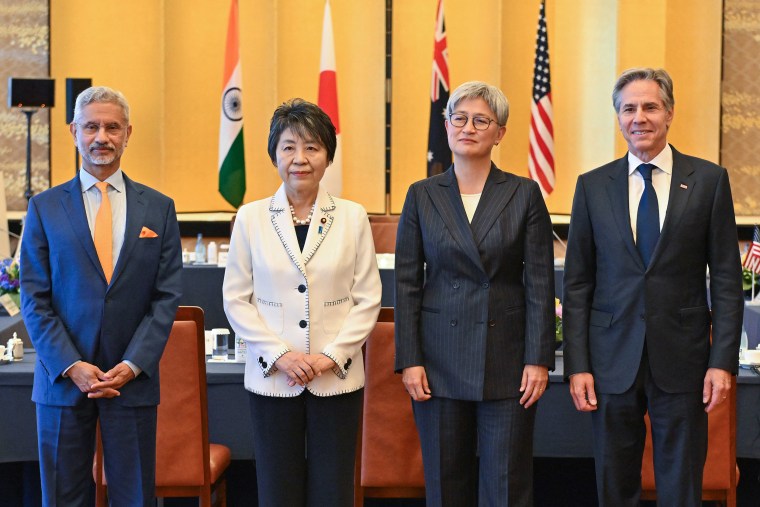
In security talks between the U.S. and Japan on Sunday, the two allies labeled China the “greatest strategic challenge” facing the region.
Foreign ministers from Australia, India, Japan and the United States said Monday that they were seriously concerned about intimidating and dangerous maneuvers in the South China Sea and pledged to bolster maritime security in the region.
The joint statement came after talks among the so-called Quad countries in Tokyo, attended by Australia’s Penny Wong, India’s Subrahmanyam Jaishankar, Japan’s Yoko Kamikawa and Antony Blinken from the U.S.
China is the “greatest strategic challenge, facing the region.
In security talks between the U.S. and Japan on Sunday, the two allies labeled China the “greatest strategic challenge, facing the region.
“We are seriously concerned about the situation in the East and South China Seas and reiterate our strong opposition to any unilateral actions that seek to change the status quo by force or coercion,” the ministers said in the statement, which did not directly mention China. Read more…
Focus Point: Regional Security- Transatlantic Security/ Middle East
Erdogan says Turkey might enter Israel to help Palestinians | Euronews with AP
Euronews with AP| 29.07.2024
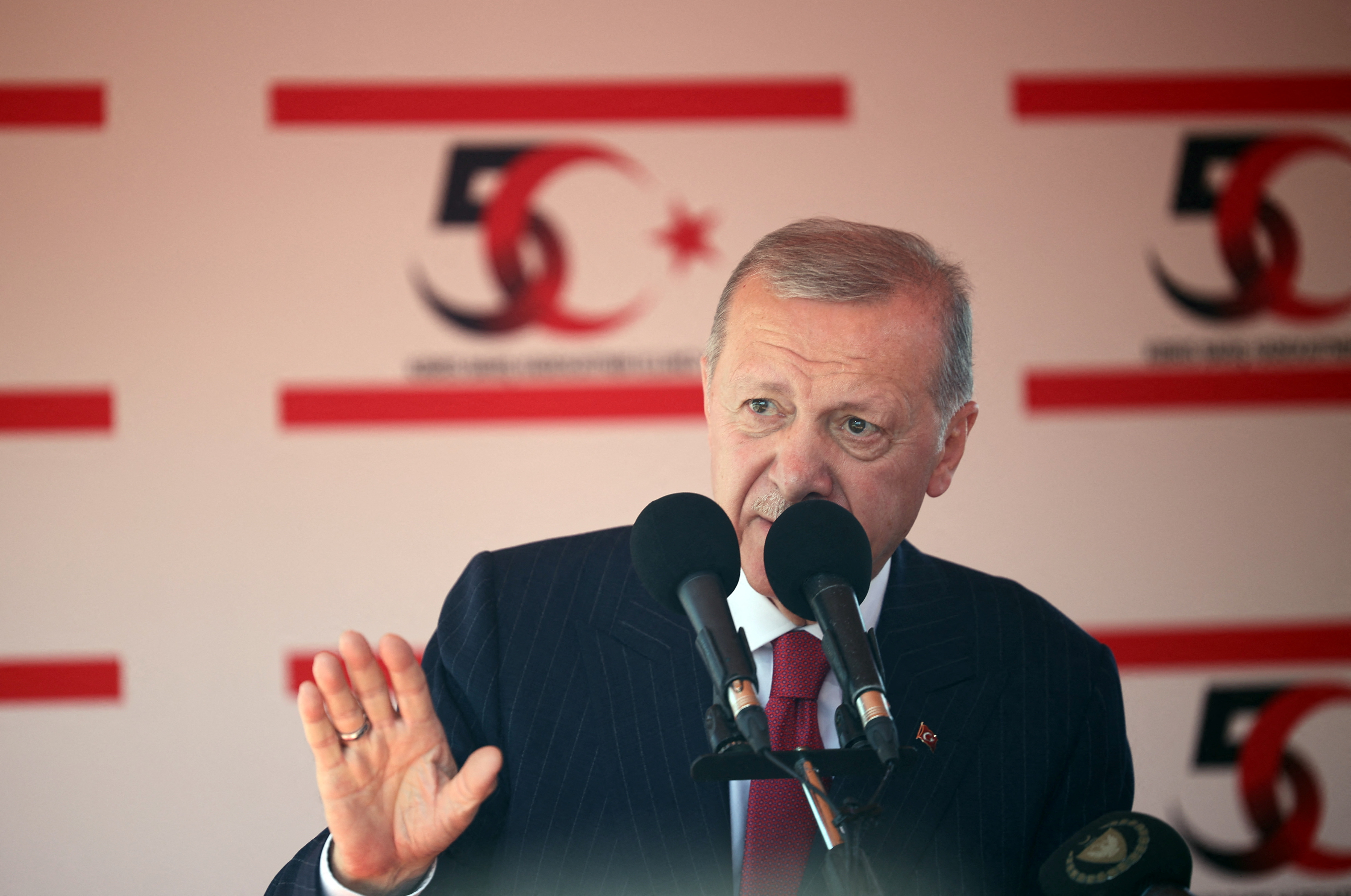
President Tayyip Erdogan said on Sunday that Turkey might enter Israel as it had done in the past in Libya and Nagorno-Karabakh, though he did not spell out what sort of intervention he was suggesting.
Erdoğan: …just like we entered Libya, we might do similar to them (Israel),”
Erdogan, who has been a fierce critic of Israel’s offensive in Gaza, started discussing that war during a speech praising his country’s defence industry.
“We must be very strong so that Israel can’t do these ridiculous things to Palestine. Just like we entered Karabakh, just like we entered Libya, we might do similar to them,” Erdogan told a meeting of his ruling AK Party in his hometown of Rize. Read more…
Focus Point: Regional Security- Transatlantic Security/ Middle East
What does Haniyeh’s killing mean for Gaza ceasefire? | BBC
Paul Adams| 30.07.2024
 The most recent opinion poll showed that Ismael Haniyeh was considerably more popular than the elderly Palestinian President, Mahmud Abbas.
The most recent opinion poll showed that Ismael Haniyeh was considerably more popular than the elderly Palestinian President, Mahmud Abbas.
The timing of Haniyeh’s killing suggests this was a wider part of Israel’s threatened retaliation for the Hezbollah rocket attack that killed 12 Druze children and young people in the Israeli-occupied Golan Heights on Saturday – retaliation that included the killing of a senior Hezbollah commander in Beirut on Tuesday.
Israel had warned that its response would be harsh.
Israeli officials regularly point out that Iran is the nexus for the so-called “arc of resistance” in the Middle East, which includes Hezbollah in Lebanon, Hamas in Gaza and the West Bank, and the Houthis in Yemen.
After dealing a blow to Hezbollah in Beirut (and recently to the Houthis in Hodeidah), killing the Hamas leader in Iran sends an emphatic, chilling message, to the militant groups and their Iranian backers: Israel can and will come after you, wherever you are. Read more…
Focus Point: Security and Defense Policy- Great Power Competition
Germany accuses China of conducting 2021 cyberattack on cartography agency | Reuters
Reuters |31.07.2024
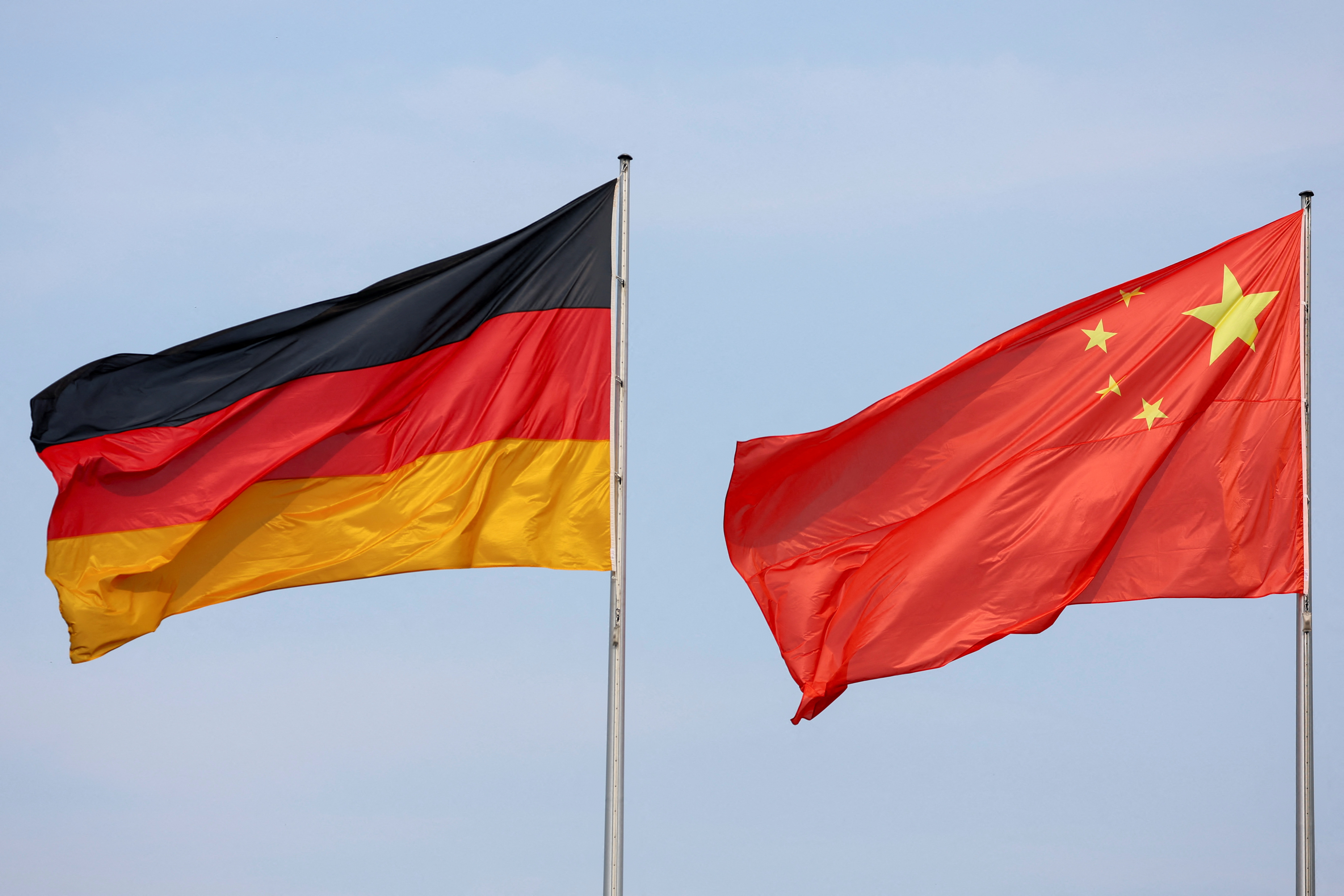
Germany accused China on Wednesday of having been behind a 2021 cyberattack on the federal cartography agency for espionage purposes and summoned Beijing’s ambaassador to Berlin to lodge a complaint.
China’s foreign ministry did not immediately respond to a request for comment.
“We call on China to refrain from, and to prevent, such cyberattacks,”
“We call on China to refrain from, and to prevent, such cyberattacks,” Interior Minister Nancy Faeser said in a statement, adding that the incident had shown just how big a threat such attacks now posed.
Security services expect China to further intensify its state-run espionage activities, the ministry said. Tensions over Chinese espionage in Germany and other Western countries have increased in recent months, particularly after the high-profile arrest of a European Parliament aide in April. Read more…
Focus Point: Social, Economic & Security- Disinformation
Thugs hijacked Southport and families’ grief, MP says.| BBC
Stewart Whittingham, Marc Waddington & Ian Shoesmith | 01.08.2024

Merseyside Police said those behind the violence had been fired up by social media posts which incorrectly suggested an Islamist link to Monday’s stabbings.
Home Secretary Yvette Cooper had earlier warned about disinformation linked to the attack.
A 17-year-old boy, who was arrested on suspicion of murder and attempted murder after Monday’s attack, has no known links to Islam.
Assistant Chief Constable Alex Goss said there had been “much speculation and hypothesis” around the teenager and “some individuals” were using it to “bring violence and disorder to our streets”.
“We have already said that the person arrested was born in the UK, and speculation helps nobody at this time.” Read more…
Focus Point: Emerging Technologies & Data- Artificial Intelligence
What to expect as the EU’s AI Act comes into force |Euronews
Anna Desmarais| 01.08.2024
The EU AI Act enters into force on Thursday and will apply to any artificial intelligence (AI) systems already in place or in development.
The act is widely considered to be the first legislation in the world that attempts to regulate AI based on the risks it poses.
Lawmakers passed the legislation in March, but its publication in the European Commission’s official journal in July set the wheels in motion for its coming into force.
The August 1 date sets off a series of dates and timelines over the months and years ahead to prepare companies that use AI in any capacity to get familiar with the new legislation and comply. Read more…
Focus Point: Security and Defense Policy- Emerging Threats and Global Risks
The 2024 Annual Estimate of the Strategic Security Environment | USAWC
The USAWC | 02.08.2024

The 2024 Annual Estimate of the Strategic Security Environment sets the foundation for cutting-edge research to understand the ever-evolving security environment domestically and internationally.
≅ Competition with the People’s Republic of China continues to dominate the strategic narrative, with global implications for US national interests.
≅ The Russia-Ukraine War and the deteriorating situation in the Middle East, however, present immediate and political challenges that will undoubtedly influence US military efforts abroad.
≅ At the same time, the United States faces domestic challenges in navigating civil-military relations, and the Army is working diligently to overcome institutional hurdles.
The potential relative advantage the United States maintains over its adversaries, is further challenged by emerging technologies, many of which have yet to realize their impact on defense operations.
The first National Defense Industry Strategy -January 2024 and Army Force Structure Transformation
≅ The United States published its first National Defense Industry Strategy in January 2024, focusing on resilient supply chains, workforce readiness, flexible acquisition, and economic deterrence.
≅ Additionally, the Army released the 2024 white paper “Army Force Structure Transformation,” which lays the groundwork for creating new capabilities, initiates new recruitment modernization efforts, and justifies challenging personnel reductions across the force.
≅ Finally, the prevalence of competition in new and maturing arenas (such as space and the polar regions) may impact a delicate balance among the great powers. This balance, and the potential relative advantage the United States maintains over its adversaries, is further challenged by emerging technologies, many of which have yet to realize their impact on defense operations. Read more…
Focus Point: Security and Defense Policy- Great Power Competition
World leaders hail landmark US-Russia prisoner swap | Euronews
Daniel Harper & Euronews | 02.08.2024

The recent prisoner swap between Russia and the West — the US and Russia’s biggest in the post-Soviet era which saw the exchange of 24 individuals — has garnered widespread reactions from global leaders, who have expressed relief, cautious optimism, and in some cases, tension.
As part of the deal, 24 prisoners held in seven countries have been freed — 16 from Western nations and eight from Russia.
United Nations High Commissioner for Human Rights Volker Turk expressed his “relief” over the swap, which was facilitated by Turkey, emphasising the importance of journalistic freedom and human rights.
NATO, which played a crucial role in the negotiations, also welcomed the release of the prisoners. Read more…
Focus Point: Security and Defense Policy- Great Power Competition
Russia pulled back weapons shipment to Houthis amid US and Saudi pressure | CNN
Natasha Bertrand and Katie Bo Lillis, | 02.08.2024

Russia was preparing to deliver missiles and other military equipment to the Houthi rebels in Yemen late last month but pulled back at the last minute amid a flurry of behind-the-scenes efforts by the United States and Saudi Arabia to stop it, multiple sources familiar with the matter told CNN.
The Houthis began their near-daily attacks on ships transiting the Red Sea in November 2023, prompting the US and UK to conduct several rounds of airstrikes inside Yemen to try to eliminate their weapons infrastructure.
But their supply is not infinite, particularly because…
The strikes do not appear to have significantly impacted the Houthis’ stockpiles, and the rebel group even showed signs of being willing to sell some weapons to the Somali militant group al-Shabaab in June, CNN previously reported. But their supply is not infinite, particularly because the US has sanctioned several entities over the last few months — primarily out of China and Oman — believed to be supplying the group with weapons components.
The Houthis are also in particular need of new radar systems, which US Central Command forces have regularly targeted to try to blunt the Houthis’ missile attacks.
There have been indications as well that the Houthis’ primary patron, Iran, has had some concerns about the group’s attack strategy, whereas Russia has been critical of the US and UK attacks on the Houthis.
Thank you very much for reading.
The NAVI Research Institute is the research division of NATO Veterans Initiative - NAVI that provides a unique perspective to transatlantic leaders and societies on peace and security through the lens of NATO's founding principles of rule of law, democracy, human rights, and individual liberties. The NAVI Research Institute was officially established by the NAVI Board on July 16th, 2023.
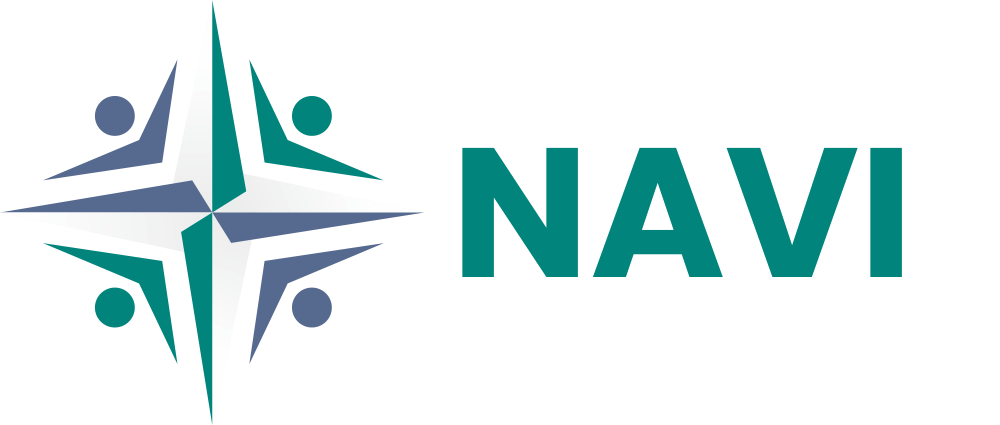
![NAVI-PROJE-[Recovered] Radar Weekly](https://nato-veterans.org/wp-content/uploads/2024/05/NAVI-PROJE-Recovered-696x392.gif)
